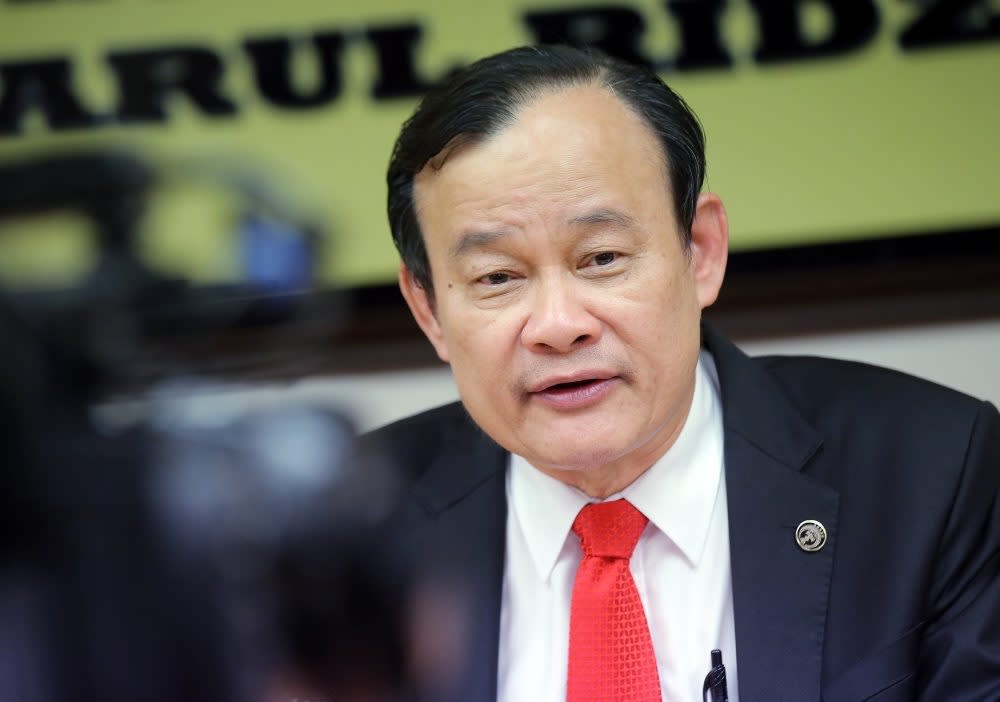Malay voters will be more wary of DAP after Ngeh Koo Ham’s Shariah committee blunder, analysts suggest

KUALA LUMPUR, Jan 3 — Malay voters who did not vote for Pakatan Harapan (PH) will be more wary of the coalition and its component DAP after the recent controversy over Beruas MP Datuk Ngeh Koo Ham’s statement regarding the Shariah law special committee, analysts have warned.
Although Ngeh had apologised and retracted his statement, those polled suggested that the damage was already done as it would further undermine what little support DAP is getting from Malay voters and this incident would further serve as “ammunition” for PAS and Perikatan Nasional (PN) to paint PH and DAP as “anti-Islam”.
“To be honest Malay views on the DAP were never great in the first place.”
“Now they have ‘proof’ that the DAP is out to abolish Malay and Muslim rights,” said International Islamic University Malaysia’s political science lecturer Syaza Shukri.
The associate professor suggested that the Opposition will likely use the contentious issue to pull more Malay support away from PH.
“They need to do something better and beyond to seriously gain the trust of the Malay community,” she said, suggesting that Ngeh’s apology would only appease PH supporters.
Ngeh, in his December 28 statement, had suggested that both non-Muslims and a member from the Malaysian Bar who are constitutional experts be also appointed as members of the committee studying how to harmonise the Shariah law and the Federal Constitution.
This prompted the Sultan of Selangor Sultan Sharafuddin Idris Shah to remind Malaysians, especially non-Muslims, to respect and not interfere in matters related to Islam in the country. Prime Minister Datuk Seri Anwar Ibrahim had backed this rebuke.
Subsequently, Ngeh apologised and retracted his statement on December 30, saying he had no intention to interfere in Islamic affairs.
Meanwhile, University of Malaya’s sociopolitical analyst Awang Azman Awang Pawi said Ngeh’s statement had upset the Malay-Muslim community which may destroy support for PH and even Umno and the unity government.
“The Malay community has always been wary about DAP’s stance on such matters and the propaganda against DAP has always painted the party as anti-Islam since Tun Dr Mahathir Mohamad’s era, so this was ingrained in them,” he said.
The associate professor said now is a crucial time for the PH-Barisan Nasional unity government as they are still adapting to the partnership.
“They need time so any controversial views should be managed immediately and they must make sure it doesn’t happen again,” he said.
He echoed Syaza’s opinion that this incident will be used by the Opposition in their campaigns.
“DAP has to be careful when issuing statements and voicing their opinions if they want to continue to get support from the Malay Muslim community for the sake of the unity government’s stability,” he said.
Senior Fellow of Singapore Institute of International Affairs Oh Ei Sun said this will not be helpful for Umno and PH to recover their already abysmal Malay support.
He said only time will be able to dilute the impact but the government does not have time as “its survival hangs on a thin thread.”
“Ngeh’s mistake is not that he brought up the issue but it’s because he brought it up openly instead of going through internal channels,” Oh said.
He said others had brought up the same issue before Ngeh because of concerns among non-Muslims on how Islamic laws could indirectly affect them.
“I don’t think non-Muslims have a problem with that,” he said, referring to the implementation of Shariah laws.
“Their problem was that a lot of these laws, when initially passed, were for Muslims. But when it comes to implementation and enforcement, non-Muslims get caught up with this law,” he added, citing conversion into Islam as an example.



